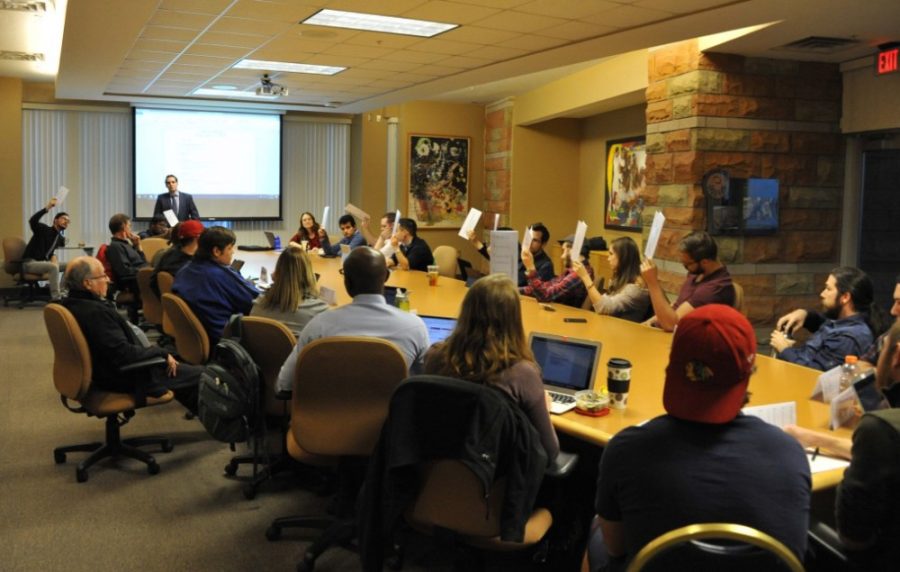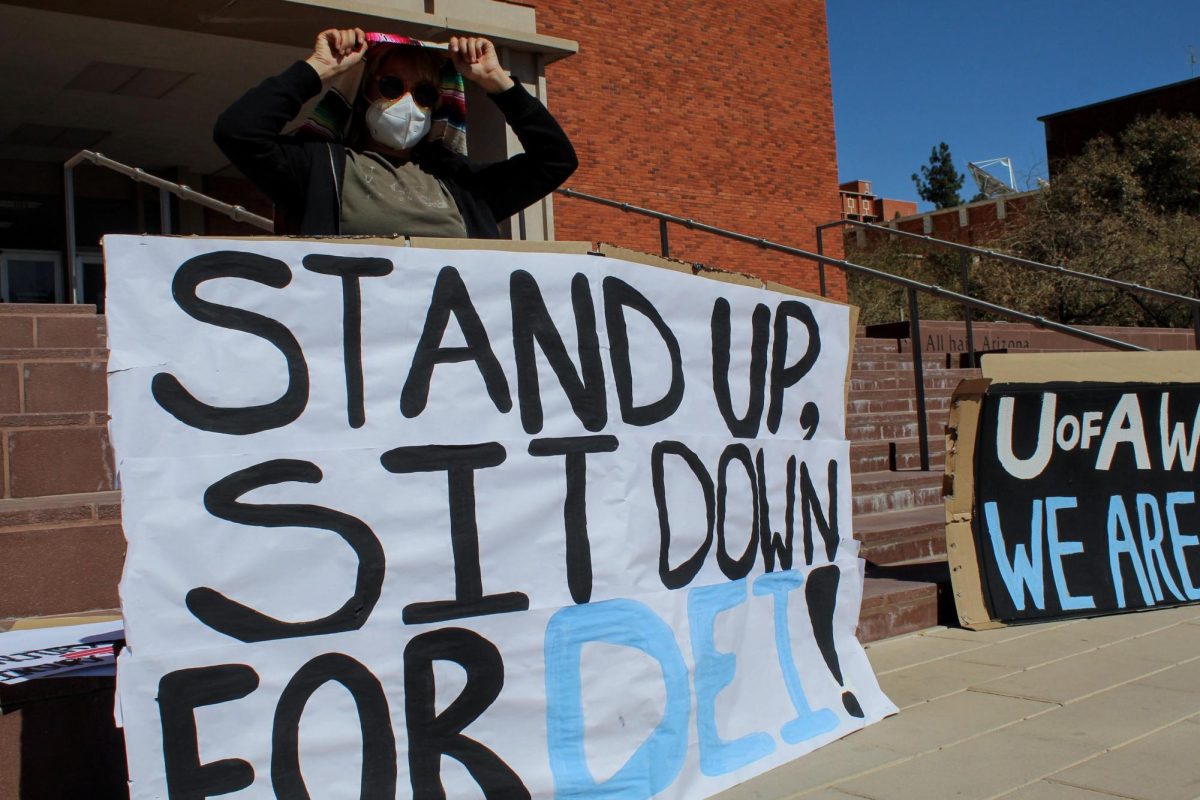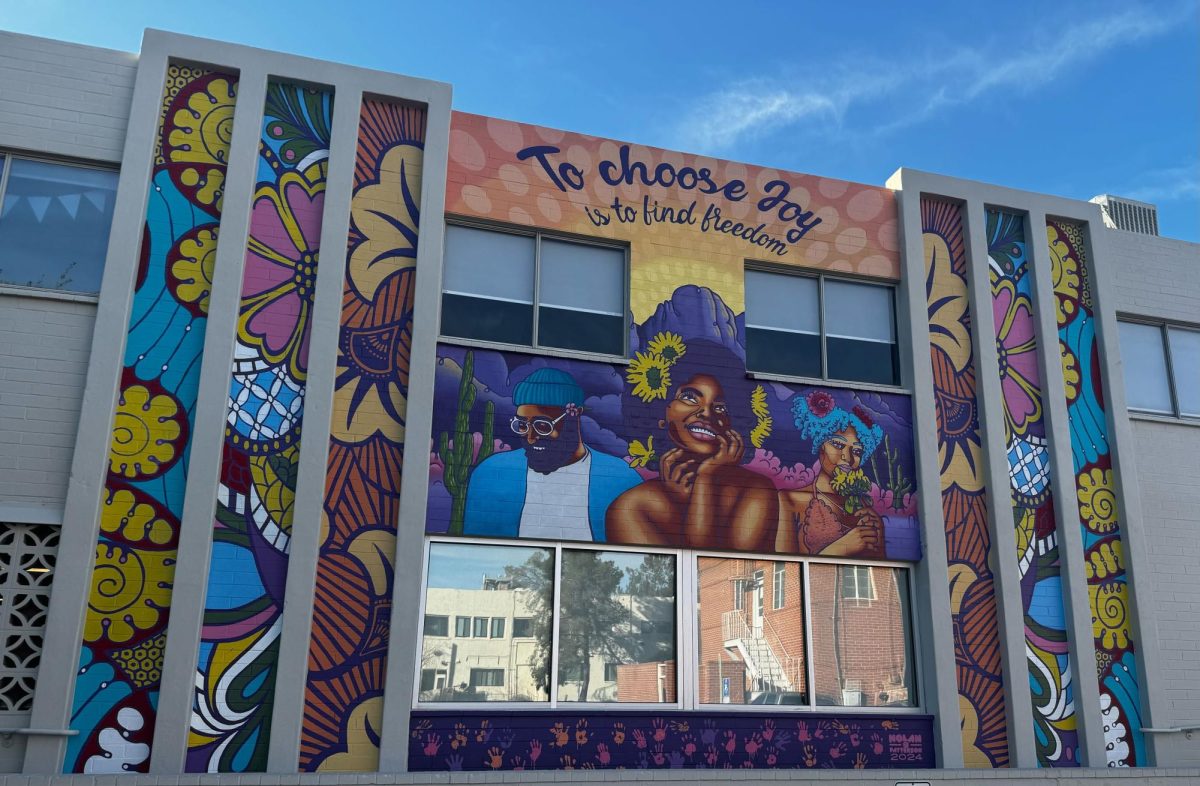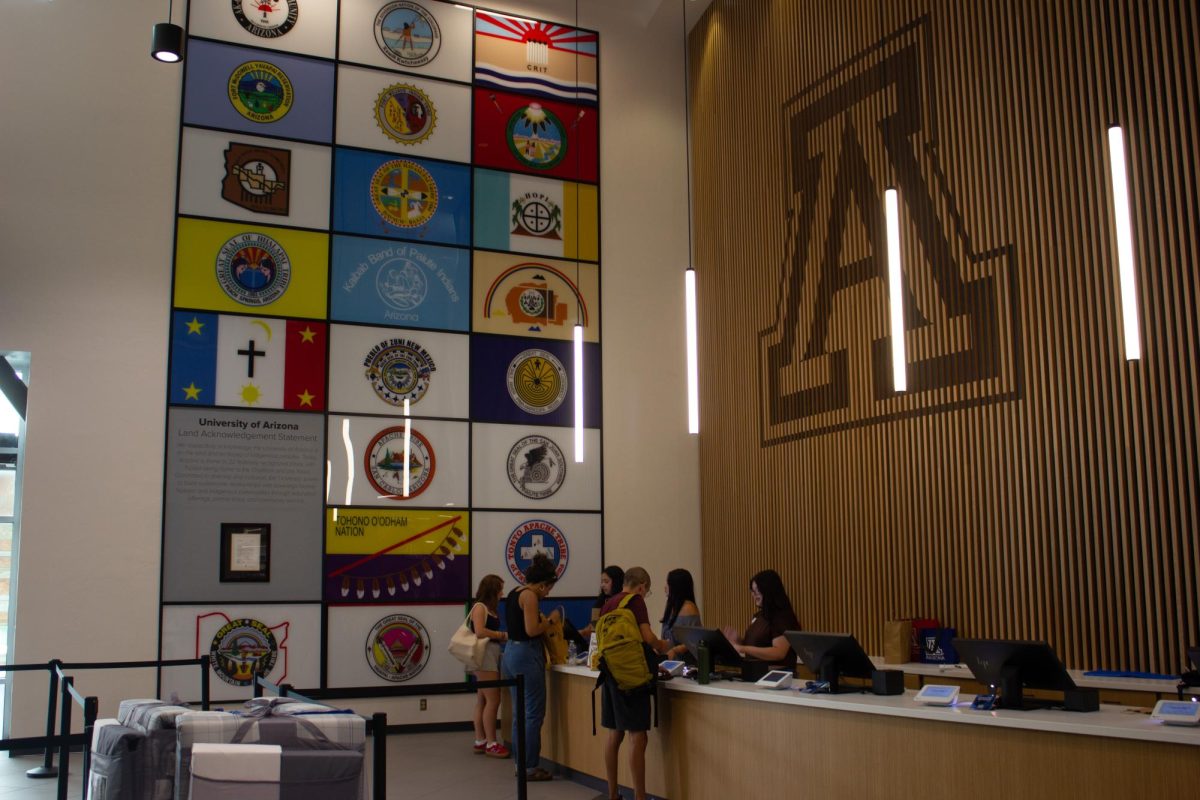The Graduate and Professional Student Council Executive Board discussed any remaining questions on the adoption of the Associated Students of the University of Arizona Supreme Court and campus fees on Jan. 30.
Janis Gallego, student legal services adviser, answered any final questions from the board over the documents they will need to approve in order to gain access to the court.
Jasmine Sears, GPSC administrative vice president, expressed her concern over only Juris Doctorate candidates in the James E. Rogers College of Law serving as legal representatives.
The justices issued this rule last year in order to keep the playing field level for those involved in cases, Gallego said. Other graduate students in the college can serve as legal advisers.
The board plans to change the language in their new elections code written to incorporate the court in order to allow for any graduate student to serve on the election commission responsibility for overseeing first appeals of an election directors decision on an election complaint.
The board plans to release a Deferred Action for Childhood Arrivals letter in support of the policy and a separate strategic plan for the council.
Jude Udeozor, GPSC president, expressed his concern over increasing fees for graduate students on campus.
GPSC plans to release a survey to all graduate students in order to provide the administration with a list of fees graduate students oppose or are more open to seeing increased.
Udeozor plans to lobby the tuition and fees committee to provide graduate students with a tuition and fee guarantee similar to the undergraduate guarantee which locks tuition and mandatory fees for four years.
Danielle Blalock, GPSC executive vice president, discussed her concerns regarding the National Association of Graduate-Professional Students congressional legislative advocacy platform.
If the GPSC were to send a representative, they would meet with Congressional leaders to discuss sexual assault and health insurance. They would not be allowed to discuss visas or graduate student debt.
The board plans to focus on lobbying within the state as well as not send a representative to NAGPS campaign.
Sears expressed her concern as an executive board member unilaterally promised to hand out a full stipend to a student if they attended a committee meeting as opposed to obtained volunteer hours.
The board plans to email all GPSC members clarifying this is not the case.
Along with publishing a letter to the editor in The Daily Wildcat, GPSC sent an email to all faculty members reaffirming their commitment to fight for all students’ rights in response to Donald Trump’s recent executive order.
Udeozor received backlash from a number of faculty members for sending the email through the faculty mass email system utilized by the university.
UA President Ann Weaver Hart sent a similar email later in the day.
Blalock continued her discussion on decreasing executive board costs, which currently consume 10 percent of the budget. The GPSC spends $102,000 on personnel.
The board discussed a plan where only the executive board is reduced to five members and only two tuition waivers will be provided to the board.
The GPSC is sponsoring a garden competition being conducted on top of the Student Union Memorial Center because all food grown will be donated to the UA Campus Pantry.
The board plans to address ask for K grades, or the grades given to students in the process of completing a multi-semester graded assignment, to be changed to on a satisfactory progress or fail scale.
The executive board plans to ask for a presentation on Arizona open meeting laws to be held on Feb. 13 so they can attend and will shorten their scheduled executive board meeting accordingly.
The next general council meeting will take place beginning at 6 p.m. on Feb 6.
Follow Randall Eck on Twitter.









